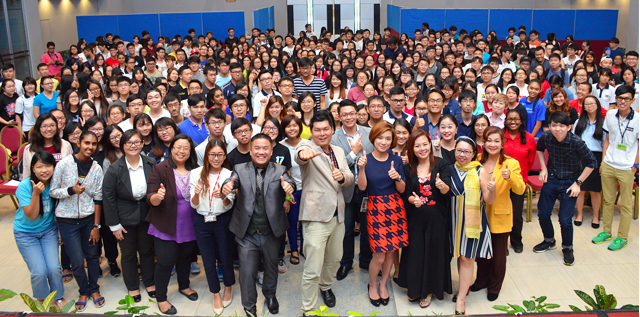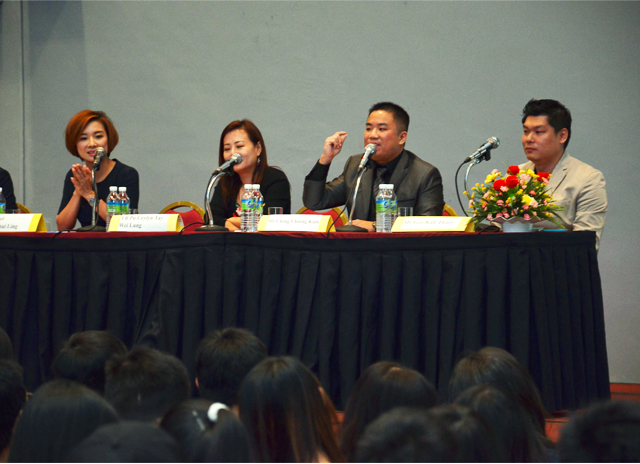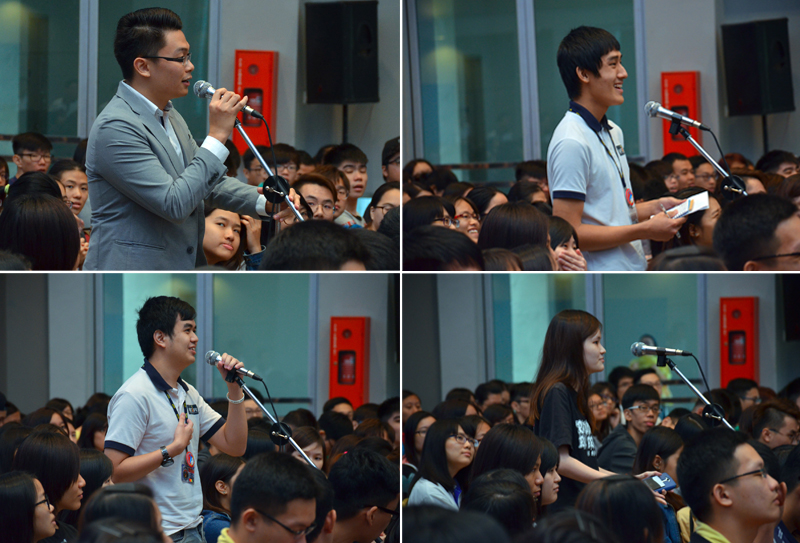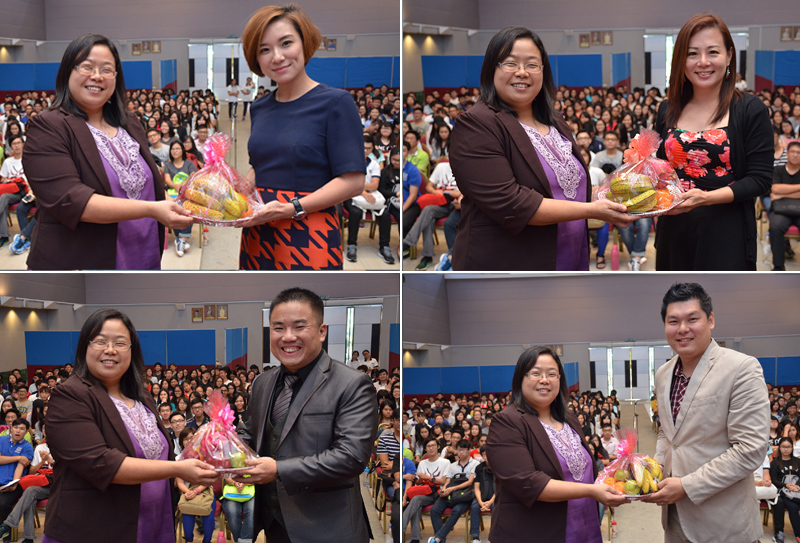

Speakers and participants at the end of the forum
With the commitment to bring forth students’ best skills and to realise their full potential, UTAR has constantly emphasised on soft skills development to be inculcated among students. To expand that effort, a recent “Leadership Skills for Youth” forum, organised by the Department of Soft Skills Competency (DSSC) of Kampar Campus, was held on 26 November 2016 to further inspire participants to develop effective leadership skills.
The invited speakers included Communication Expert, Television and Radio Producer, Founder and Managing Director of AW Communications, and Anchor of Melody FM Wong Chui Ling; Ipoh City Councillor, and Director of Bao Today and Chengtao Machinery Experts Sdn Bhd Ceylyn Tay Wei Lung; Managing Director of GAFS Advisory Sdn Bhd, Registered Financial Planner and Associate Estate Planner Practitioner Goo Kah Thart; and Managing Director of Hills and Cheryl Corporate Advisory Sdn Bhd Chong Choong Kian.
Four questions were raised at the forum: “What are effective leadership skills?”, “Why are soft skills important to young leaders?”, “Successful leader: Nature or Nurture?”, and “How to develop effective leadership skills?”. Over 300 participants benefitted from the speakers’ experiences, thoughts and opinions, which are vital information to help prepare participants for the rapidly changing world.
The first to speak was Wong, who, from her expertise in the entertainment and communication industry, shared that the four skills of personal traits, social grace, people skills and communication, are collective elements found in a leader. “Being a leader will involve: your personal branding as you are a representation of yourself, the know-how to carry yourself in society, the skills to do people profiling as you need a team to grow, and of course the ability to speak well so as to effectively lead and convey messages to your team members,” as she elucidated further.
Wong likewise highlighted the importance of participants constantly seeking new knowledge and applying their newly acquired knowledge in areas they can be of service. One example is for participants to participate in community activities, which enables them to acquire new soft skills while also polishing their leadership skills. Another way to improve, she added, was to do constant self-assessment and self-reflection.
On possessing good communication skills, Tay shared, “It is important for a leader to have good communication skills because you cannot influence or motivate someone without talking. The need to speak face-to-face, with emotions involved, allows people to see your sincerity, persuading them to trust you.” However, she advised the participants to be altruistic, humble, and to handle emotions with a constant positive spirit.
Even when faced with failures, Tay encouraged participants to never be afraid of making mistakes and to learn from their mistakes. “The more mistakes you make, the more you will learn. See crises as opportunities and find yourself a mentor so you can learn better. Remember the hardships that come with their mentoring will help develop the best personality in you,” she said. Other points highlighted by Tay also included having good planning, a strong mindset and being meticulous.
Chong emphasised for leaders to always smile, especially when meeting with people, because your facial expression reflects one’s confidence. “Soft skills are about showing your character to the other individual, and it complements your hard skills,” said Chong, who gave examples of interview cases where an individual’s negative facial expression have adversely affected the interview. Chong advised participants to also learn out of the box and to always lend a listening ear, especially when being corrected.
Goo spoke of a leader as being an individual with humane values and who is able to perform their best, while motivating others to do their best as well. “To lead others, you have to first lead yourself, and leaders draw out leadership qualities in their members,” he said. Citing from his experience with UTAR interns, he mentioned that UTAR students were indeed exemplary students with good leadership skills, and reminded participants to view challenges as opportunities that will help bring out their leadership skills.
He then shared a formula with the crowd, known as the “OIL” formula. O stands for observation, I stands for imagination and L stands for logic. He spoke of it as an effective method to acquire new soft skills. While other speakers mentioned the importance of having good communication skills, Goo added on that they should also speak mindfully.
The forum then proceeded with an interactive Q&A session and ended with a souvenir presentation from DSSC Kampar Head Hee Chwen Yee to the four speakers.

From left: Wong, Tay, Chong and Goo offering valuable leadership advice

Participants posing their questions in the Q&A session

Clockwise, from top left: Hee presenting tokens of appreciation to Wong, Tay, Goo and Chong
Wholly owned by UTAR Education Foundation Co. No. 578227-M LEGAL STATEMENT TERM OF USAGE PRIVACY NOTICE